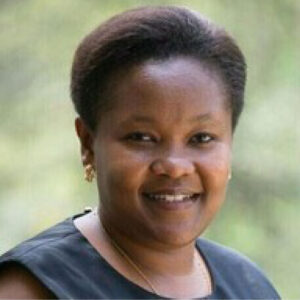6th Annual Learning Event
Theme: Developing smallholder farmer resilience in the face of global issues.
6th Annual Learning Event
Session Details
Session 1
Sharing Agriculture Data to Drive Efficiencies, Support Smallholders, and Strengthen Decision Making Within the Agriculture Sector
Data defines our age, becoming a key driver of economic growth and development. Insights derived from data can provide important business acumen, improve the provision of agricultural products and services in pursuit of national, regional, and global food security; In addition to these insights, data catalyzes economic growth, creating a range of opportunities in the agriculture sector for all stakeholders and farmers at large. Despite this growing role of data, access to data as well as broad use and reuse of data in a privacy respecting, trustworthy, and a sustainable way remains a challenge.
The session will bring together industry leaders to discuss the opportunity, challenges, and potential opportunities and shedding light on the importance of sharing agriculture data to drive efficiencies, support smallholders, and strengthen decision making within the Agriculture sector.
The objective of the session will be to introduce broad ecosystem actors (financial institutions, MNOs, agribusinesses, agritechs, fintechs, public and private actors in the agriculture sector) on the potential to build products and services that utilize data sharing principles for the benefit of smallholder farmers. This session will provide examples from multiple organizations from different perspectives and the efforts they have taken to collect and share data, share their learnings, and encourage participants to actively engage and explore the benefits of data sharing.
Emmanuel Makau
Senior Regional Technology & Data Manager
Session 2:
Driving Investments in Digital Agriculture
The session will investigate the current state of investments in the Digital Agriculture sector as pertains to private sector organisations including agricultural and technology actors, donors and private investment companies. Discussions in the session will pay attention to the challenges innovators face while raising funding to scale their operations and which suitable financial vehicles should be targeted for these activities. The session will also look at the role social impact plays including metrics in impact investments and how innovators can leverage these activities to secure impact funding. Discussions will also zero in on climate financing and what innovators can do to unlock this for their organisations.
The objective of this session id to understand the opportunity in the digital agricultural space for investors and how to scale/unlock investments in the sector reducing the information asymmetries and connecting innovators to the right types of investment opportunities.
Grace Njoroge
Technical Director-Programs
Mercy Corps AgriFin
Session 3:
Boosting Gender Equality in Agriculture Through Innovation and Digitization
Today’s digital transformation in Agriculture opens avenues for women’s economic and social empowerment and can be used to boost gender equality if we are strategic about it. Digitalization potentially supports women in myriad of ways – from earning income and growing employment and networking prospects to accessing knowledge and information. Thus, closing the digital gender gap is an ever more urgent priority.
The objective of the session is to learn from our experience and find entry points, where we can really make a difference, making it easier for women to play a more active role in agricultural value chains and the need to create an enabling environment where agriculture innovation is encouraged for all.
The session will also explore Mercy Corps Agrifin’s use cases, research, and insights from our engagements on the constraints faced by women in rural and agricultural livelihoods and the opportunities for service providers and funders to add value to their lives and livelihoods, as well as the Mercy Corps AgriFin Gender Transformative Toolkit.
Kassim Zani
Gender Transformative Programming Lead,
Mercy Corps AgriFin
Session 4:
Digital Climate Smart Agriculture: Building Knowledge and Bundles to Drive Adaptation and Resilience
The AgriFin Programme works with partners to build smallholder farmers’ resilience in the face of global challenges, many of which are exacerbated by changes in our climate. The farmers we serve with digital products and services are facing longer periods with little or no rain, increases in pest and disease outbreaks, flooding and reduced soil health.
Through this session, we will highlight some of the work AgriFin is doing with partners to build, test and scale digital products and services that support farmers to adapt to these changing conditions and build resilience.
This session will also introduce Sprout: the Open Agriculture Content Platform that has a range of climate smart agriculture resources and information, as well as climate related products and services that can be leveraged by partners to support farmers to build resilience to climate change, ultimately aiding smallholder productivity.
Through sharing real life examples of AgriFin’s work with partners, we hope the concept of ‘digital climate smart agriculture’ will be de-mystified for the audience.
In the second half of the session, a panel of experts will discuss how digital tools can help to make the transition to sustainable agriculture affordable and attractive to smallholders.
Elias Nure
Digital Climate-Smart Agriculture and Sprout Platform Lead,
Mercy Corps AgriFin
Victoria Clause
Digital Climate Smart Agriculture Manager and Elias Nure, Digital Climate Smart Agriculture and Sprout Platform Lead
Session 5:
Making Platforms Work for Smallholder Farmers
The main objective of this session is to explore how platforms can be scaled and adopted in response to emerging global trends. Innovators have gone all the way to invest in diverse digital solutions targeting small scale farmers. Emerging global issues affecting agriculture including Covid 19, conflicts, phones/internet penetration require these platforms to adapt and re-strategize in order to adopt and scale. For platforms to work for small scale farmers, tech innovators need to bundle their services.
Objectives:
i) How to develop effective partnerships for platforms. Kuza case
ii) Bundling of services for an effective digital platform. The WB DAT
iii) How to make platforms work for women in agriculture- Value for women.
The session will be conducted through 3 presentations and a panel of 5. Presentations on developing effective platforms, bundling of services under the DAT one million platform and making platforms work for women. Panel discussions on effective and inclusive platforms, women on platforms, ecommerce platforms and digital field force
Samuel Karanja
Agriculture Manager,
Mercy Corps AgriFin
Session 6:
Financial Inclusion: Frontier Insights on Access to Additional Farmer Data and Blockchain Technology
The challenge: Smallholder farmers lack sufficient access to financial services, caused by administrative inefficiencies and the high-cost of reaching farmers manually. Digital interventions on farmer data collection and digitization of farmer onboarding and profiling have served to improve access to financial services.
The overall objective of this session is to highlight the strides that farmer data is taking in enhancing reliable score card models to finance smallholder farmers, and the role of insurance as a resilience tool in mitigating weather related risks.
Betty Muriithi
Senior Regional Digital Financial Services Manager
Mercy Corps AgriFin
Closing Plenary:
Addressing the issues smallholder farmers and associated marginalized groups face needs concerted efforts. During this session, we will be exploring how different organizations are strategizing and planning to provide smallholder farmers with necessary support and tools to cope with prevailing shocks, and thrive in their respective economic activities.
Overall objective for this session is to outline the various prevailing strategies at national and regional level that aid in increasing access to digital services for smallholder farmers, while seeking to address the gender divide and climate change. The panelists bring a broad range of experience which implore the participants to engage them in diving deeper in related topics.
Collins Marita
Director MERAL,
Mercy Corps AgriFin
Grace Njoroge
Technical Director-Programs
Mercy Corps AgriFin
The AgriFin Learning Event (ALE) brings together innovators, farmers, financial service providers, agribusinesses, and policymakers to share insights, foster partnerships, and scale digital solutions for smallholder farmers across Africa.
Pages
- Home
- About ALE
- Annual Events
- Resources
- Marketplace
- Contact Us








